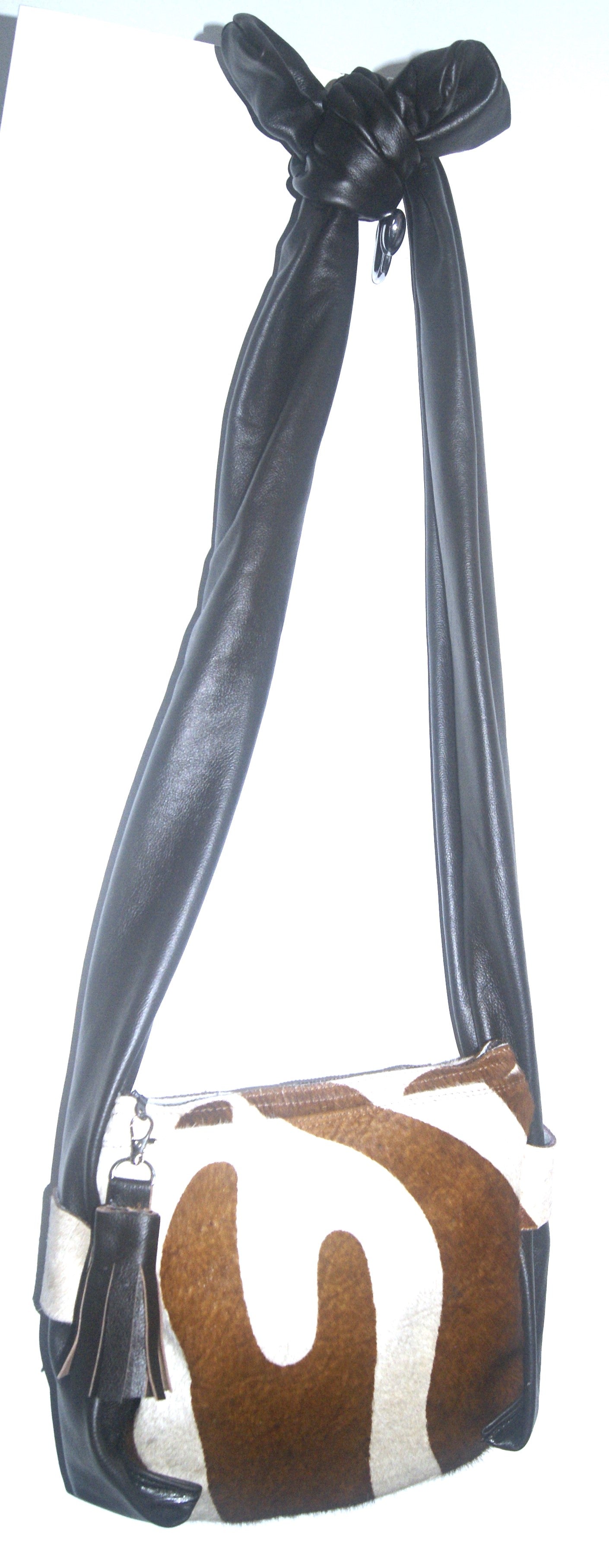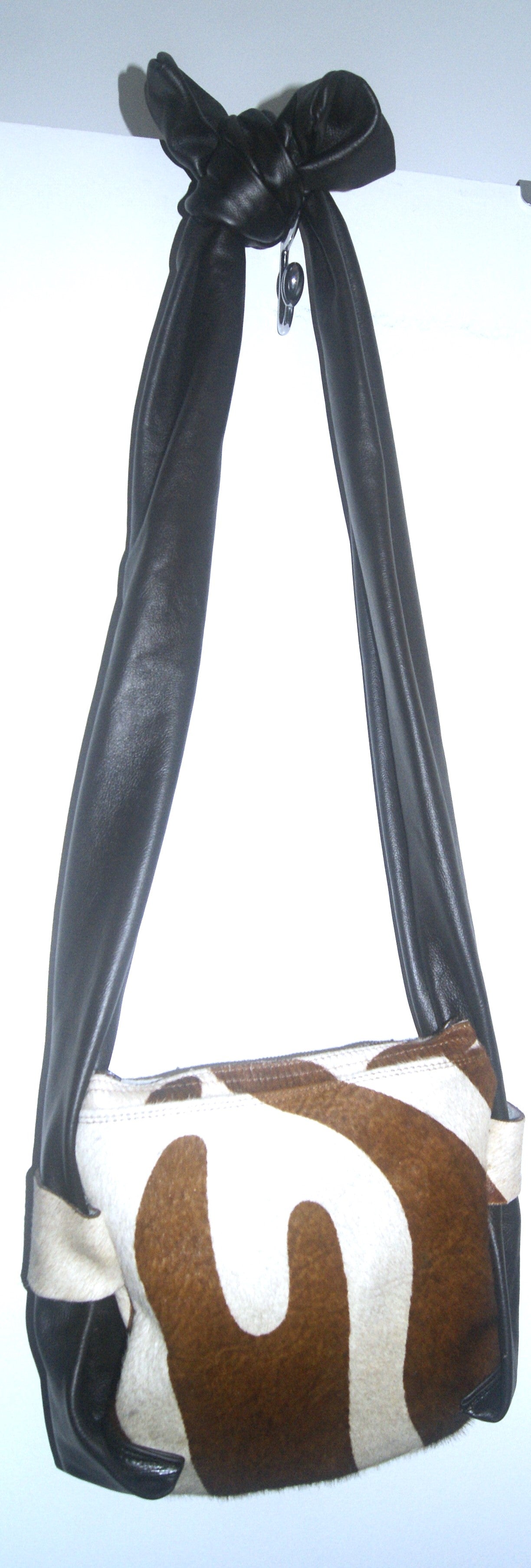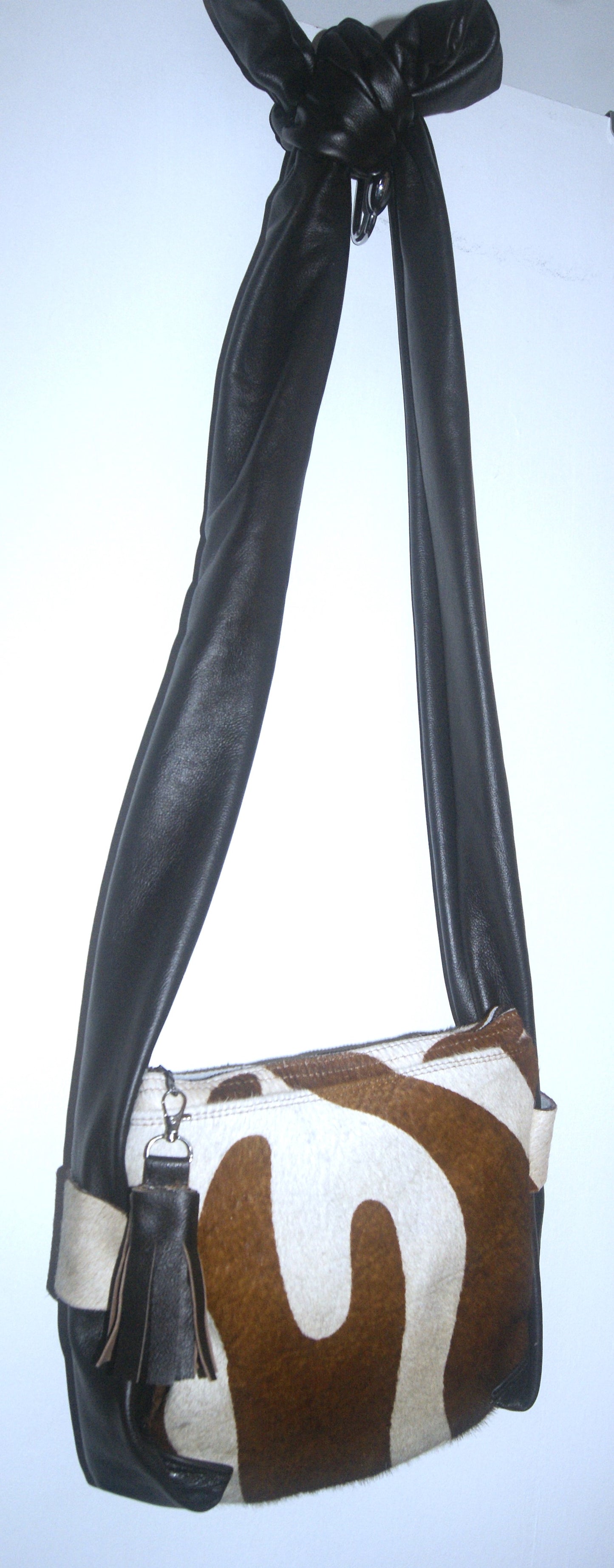Constance Baker Motely -shoulder bag
Constance Baker Motely -shoulder bag
Couldn't load pickup availability
This attractive hair on hide leather is another process in the beautification of a leather skin (hide). Measuring 12" X 11" this shoulder /crossbody bag has a natural white background. With a creative copper colored pattern. The bag has a top zipper supported by a leather tassel. A zipped top ,fully lined with two interior pockets. an be carried anywhere and any season. Because it's all real leather.
Constance Baker Motley (née Baker; September 14, 1921 – September 28, 2005) was an American jurist and politician who served as a Judge of the United States District Court for the Southern District of New York. At 15, she read works by James Weldon Johnson and W.E.B. DuBois, which inspired her interest in Black history. She met a minister who taught classes in Black history that focused her attention on civil rights and the underrepresentation of black lawyers.
Motley lacked the means to attend college, and instead went to work for the National Youth Administration. She also continued her involvement in community activities. Through this work she encountered local businessman and philanthropist Clarence W. Blakeslee, who, after hearing Motley speak at a New Haven community center, offered to pay for her education. With his financial help, she started college at Fisk University, in Tennessee, but after one year, she transferred to New York University, where she graduated with a Bachelor of Arts degree in economics in 1943. She received her Bachelor of Laws in 1946 from Columbia Law School.
In October 1945, during her second year at Columbia Law School, future United States Supreme Court Associate Justice Thurgood Marshall hired her as a law clerk. She was assigned to work on court martial cases that were filed after World War II.
Motley is widely acknowledged as a major figure in the Civil Rights Movement, especially its legal battles. After graduating from Columbia's Law School in 1946, she was hired by the NAACP Legal Defense and Educational Fund (LDF) as a civil rights lawyer. As the fund's first female attorney, she became Associate Counsel to the LDF, making her a lead trial attorney in a number of early and significant civil rights cases including representing Martin Luther King Jr.'s Freedom Riders, and the Birmingham Children Marchers. She visited Rev. Martin Luther King Jr. while he sat in jail, as well as spent a night with civil rights activist Medgar Evers under armed guard.
In 1950, she wrote the original complaint in the case of Brown v. Board of Education. The first African-American woman ever to argue a case before the U.S. Supreme Court, in Meredith v. Fair she won James Meredith's effort to be the first black student to attend the University of Mississippi in 1962. Motley was successful in nine of the ten cases she argued before the Supreme Court. The tenth decision, regarding jury composition, was eventually overturned in her favor. She was otherwise a key legal strategist in the civil rights movement, helping to desegregate Southern schools, buses, and lunch counters.
A key strategist of the civil rights movement, she was state senator, and Borough President of Manhattan in New York City before becoming a United States federal judge.
In 1993, she was inducted into the National Women's Hall of Fame. In 2001, President Bill Clinton awarded her the Presidential Citizens Medal. The NAACP awarded her the Spingarn Medal, the organization's highest honor, in 2003.In 2006, Motley received the Congressional Gold Medal from Congress for all of her accomplishments during her lifetime. In 2011, she was honored with the 13th Ford Freedom Award for her accomplishments that helped disadvantaged communities. In 2016, the Chester, Connecticut Land Trust purchased land across from her former second home. The parcel was eventually dedicated as the "Judge Constance Baker Motley Preserve". On October 6, 2019, her property located in Chester, Connecticut, was designated a site on the Connecticut Freedom Trail. The site is just one of 140 that honor African-Americans throughout the state.
Materials
Materials
Shipping & Returns
Shipping & Returns
Dimensions
Dimensions
Care Instructions
Care Instructions
clean and use leather conditioner .






